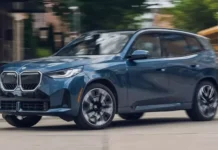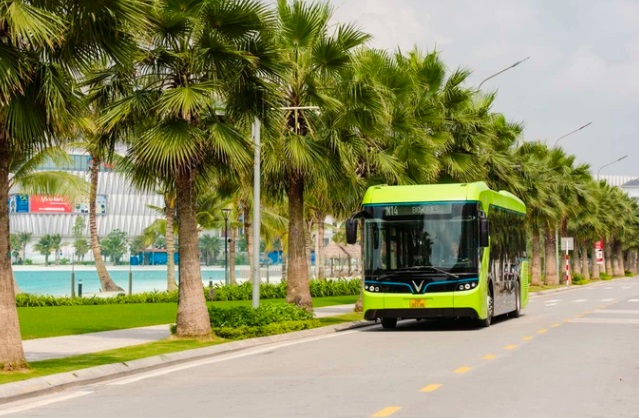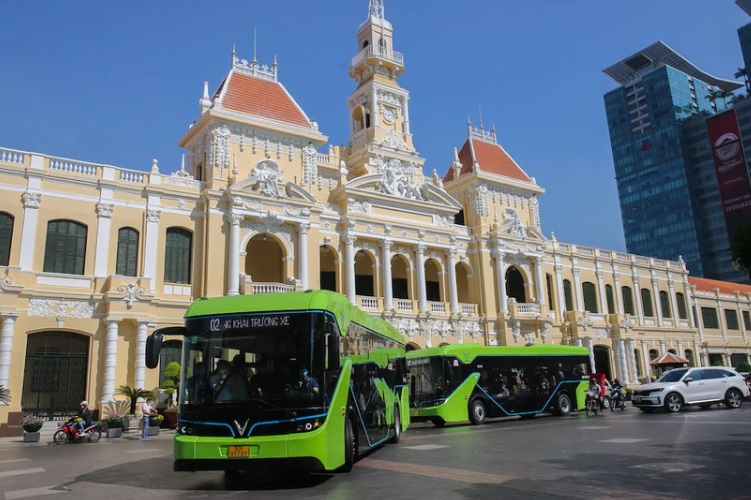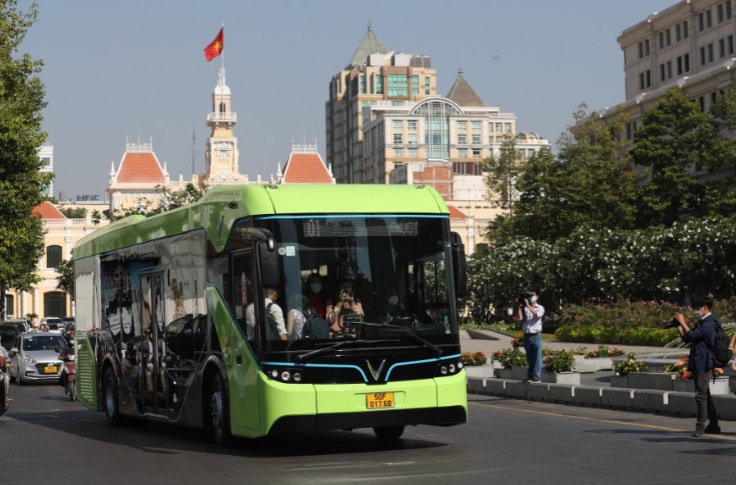The Ho Chi Minh City Department of Transport has recently reported to the Ho Chi Minh City People’s Committee on the situation of deploying electric bus routes in the city.
According to the plan, 5 electric bus routes will be implemented on a trial basis in Ho Chi Minh City for 24 months from the time the routes begin operation. The VinBus Eco-Transportation Services Company (VinBus) is the company operating these bus routes.
Since March of last year when it was put into operation, the number of passengers using the D4 bus has continuously increased, from an average of 14 passengers per trip to more than double that number. The increased number of passengers has also led to an increase in ticket sales revenue, with each trip bringing in about 154,000 VND. However, the Department of Transport stated that this amount only accounts for less than 21% of the operating cost of the bus. In the first 9 months of this year, the D4 electric bus made 28,842 trips, carrying 819,875 passengers.
Currently, the D4 electric bus receives a subsidy of 44.1% of the total operating cost from the Ho Chi Minh City government. Based on this subsidy rate, each bus trip is subsidized with 309,800 VND, while the operating cost is 702,496 VND. In order to cover this difference, each bus trip has to carry 71 passengers, corresponding to an average fare of 392,696 VND. Therefore, with an average revenue of 154,000 VND per trip, each trip is currently losing about 239,000 VND.
As of the end of 2022, VinBus had a loss of 16.1 billion VND, and in the first 8 months of 2023, the loss was 12.5 billion VND.
According to the Department of Transport, the subsidy rate for electric buses is based on the average subsidy over 10 years (2009-2019) for bus routes in the city. However, the current subsidy rate is lower than the system average, while electric buses have higher investment and operating costs compared to other types of buses.
Because of this, VinBus has proposed adjusting the subsidy rate for electric bus routes from 44.1% to 64.8%, which is the same subsidy rate applied to diesel routes in Ho Chi Minh City. At the same time, VinBus has requested to suspend the operation of the D4 electric bus route at the end of 2023 due to the financial loss.
In addition to the D4 route, the four remaining routes are: VB01 (Vinhomes Grand Park to Emart commercial center); VB02 (Vinhomes Grand Park to Tan Son Nhat Airport); VB03 (Vinhomes Grand Park to Saigon Bus Station); and VB05 (Vinhomes Grand Park to the new Eastern Bus Station – National University urban area), which are currently not being operated according to the original plan.
In recent times, VinBus has invested in a depot fund with complete infrastructure. The company has also been carrying out procedures to build a depot in Thu Duc City. However, according to the Ho Chi Minh City Department of Transport, time is needed to resolve legal procedures and conduct assessments before the project can be implemented.
VinBus has submitted a report on the plan to launch the remaining routes after the subsidy rate is adjusted and the economic-technical norms and transport rates for electric buses are issued. Specifically, the 4 bus routes are expected to start operating in May and June 2024.
In order to resolve difficulties for businesses, the Ho Chi Minh City Department of Transport has proposed to the People’s Committee to approve a subsidy rate of 64.8% for the 5 electric bus routes in 2023.
Currently, Ho Chi Minh City has over 2,100 bus operating on 129 routes, of which 91 routes are subsidized, with about 1,840 buses (15 electric buses, 496 CNG buses, 1,329 diesel buses). In addition to large electric buses, the city has previously piloted small electric buses under 15 seats in the central area, District 7, and Can Gio District, mainly serving tourists.
According to the plan, by 2030, the city aims to have 20-25% of buses running on electricity. The remainder will be converted to clean fuels such as CNG, LNP, etc.
TH (Tuoitrethudo)































.jpg)












